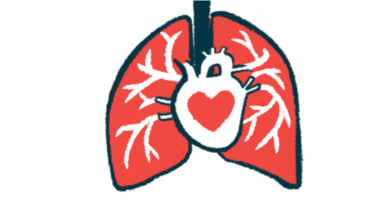Acthar Gel effective for sarcoidosis among patients of different races
Inflammatory condition largely affects Black, African American people

Acthar Gel (repository corticotropin injection) treats African Americans with sarcoidosis as effectively as it does patients of other races, a study suggests.
The study, “Acthar Gel in African Americans versus Non-African Americans with Symptomatic Sarcoidosis: Physician Assessment of Patient Medical Records,” was published in Therapeutics and Clinical Risk Management. It was funded by Mallinckrodt Pharmaceuticals, which distributes Acthar Gel.
“The results of this retrospective medical chart review highlight unmet needs that exist for African American patients with symptomatic sarcoidosis, who are disproportionately affected by the disease, and reinforce Acthar Gel’s potential to help improve health outcomes for appropriate patients,” George Wan, PhD, co-author of the study and vice president of evidence generation and data sciences at Mallinckrodt, said in a company press release.
Sarcoidosis is an inflammatory condition that disproportionately affects people who are Black or African American. Acthar Gel is approved for symptomatic sarcoidosis, but there’s not much data about how its use and outcomes differ according to race.
“In light of the evidence that sarcoidosis is common among African Americans and may result in a poor prognosis, real-world data are needed to understand patient characteristics and obtain insights on the optimal applications of Acthar Gel therapy for this vulnerable population in comparison to other races,” the scientists wrote.
Comparing use of Acthar Gel
Here, researchers reviewed the medical records from 272 people with sarcoidosis who were treated with Acthar Gel, including 168 who were identified as African American and 104 identified as other races.
Demographic and clinical characteristics were generally comparable in both groups. Irrespective of race, the most common sarcoidosis symptoms included wheezing or coughing, shortness of breath, fatigue, and pain in the bones and joints.
Patterns of Acthar Gel treatment, such as dosing regimes and how many patients completed a full course of therapy, were comparable between the two groups. A slightly higher proportion of African American patients were first-time users of Acthar Gel and this population had a slightly longer treatment duration.
The use of other treatments to control symptoms decreased after starting Acthar Gel in both groups, but the decrease was somewhat more dramatic for African Americans.
Based on physician-rated assessments, Acthar Gel was effective for improving overall health status in more than 95% of cases and similar rates were seen among African American and non-African American patients. Improvements in quality of life and lung function, and reductions in inflammation and fatigue were similar across both groups.
“The patterns of reduction in co-medication use and improvement in patient’s health status after Acthar Gel initiation suggest that Acthar Gel may be a viable treatment option in both African Americans and non-African Americans with symptomatic sarcoidosis,” the scientists said.







